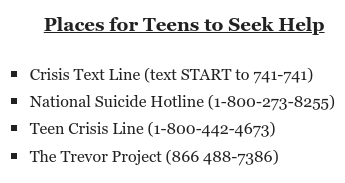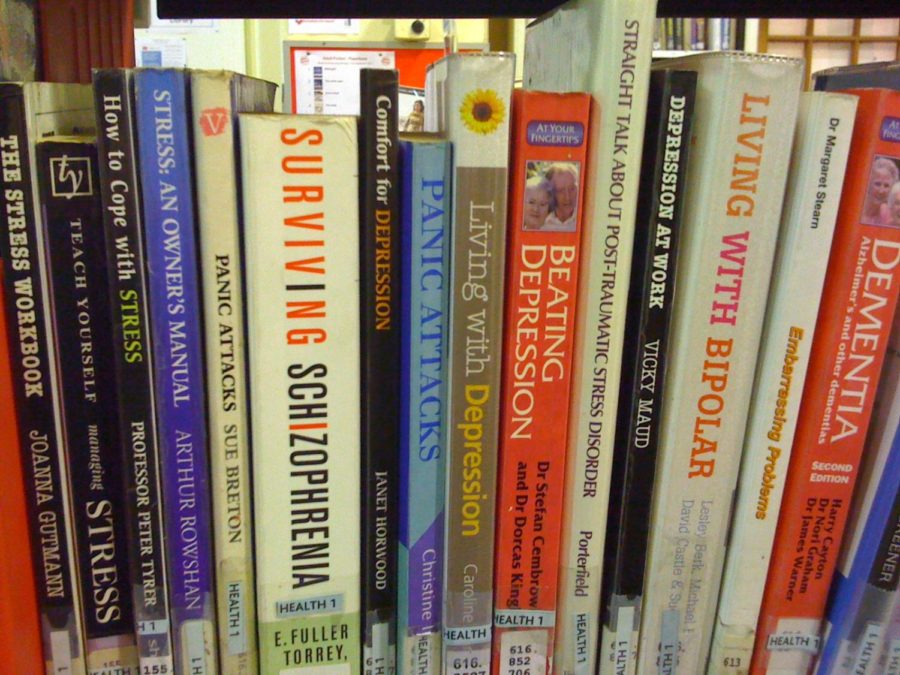The Discussion of Students’ Mental Health in Schools
Mental Health Books | Wordshore | Flickr | CC BY-NC-ND 2.0
Many books about mental health can be found in local libraries for patrons to look at on their own time, but the author argues that there should be a stronger focus on such topics in schools.
Despite what many people may think, mental health is not just a myth. Mental health is defined as a person’s condition in regard to their psychological and emotional well-being. Although the topic is seen as less taboo in recent years and has become much more normalized, it still isn’t talked about enough, especially in schools.
This school is a place we come to learn about things that may help us in the future or in the present, but we don’t typically talk about one of the most essential things in our day-to-day lives: mental health. Seeing as we come here daily, it would be efficient to teach about it in schools.
Talking about mental health in schools would allow students to become more educated about their own brains and develop a healthier relationship with their emotions. Normalizing the discussion could lead some students to realize they may need help, or at least help them recognize it for future reference.
According to the Suicide Prevention Resource Center, a person’s mental health affects their quality of life, academic achievement, and their relationships with the people around them. It affects their energy, concentration, mental ability, which all tie into a student’s ability to perform well in school. Poor mental health could also affect a person’s ability to work, which could harm students who are old enough to qualify for employment.
Having this discussion often in a school environment could allow students to recognize warning signs and risk factors of poor mental health. The more normalized this topic becomes and the more that we talk about it, the more educated people become on it. This means that talking about it in school would help students recognize warning signs of suicidal ideation in their fellow students or even in people at home. In summary, the more people know, the quicker people can get help.
Talking about mental health in an environment that students visit so often could make it easier for them to talk about their own mental health. It could open up conversations about getting help, or even be the final push someone needs to reach out. Speaking out about it could help promote mental health resources around the community and in the school, meaning more people would be able to get help.
Wouldn’t that just take time away from the school day? While, yes, implementing programs or classroom discussions may disrupt the regular school schedule, teaching about mental health is just as important. We teach math and English because it’s something students will use for the rest of their lives. Knowledge about one’s own mind will be something students would use for the rest of their lives too because it’s something that will stick with them. It’s you, your own brain. It’s something that you’ll always have, something that you’ll always have to deal with.
Efficient ways schools could speak on this topic more could be through programs, classroom discussions, after-school clubs, and even offering a class that’s centered just around mental health. A mandatory credit class that’s centered around mental health would require some people who don’t believe in mental health needs to be exposed to this as well as ensure that everyone is being educated. From that point on, voluntary courses or programs for students who are interested in learning more about the specifics of mental health could be available and promoted.
Whether it be mandatory or voluntary, making this knowledge easily available could help students live a better life, and even save someone.
For any students looking for mental health support or treatment, there are multiple independent counselors around the school and community, as well as Bowen Center, Bringing Hope Counseling, Logansport Memorial Hospital, and more. Other resources for getting help are the National Suicide Hotline (1-800-273-8255), Teen Crisis Line (1-800-442-4673), Crisis Text Line (text START to 741-741), and The Trevor Project (866 488-7386).
Your donation will support the student journalists of Logansport High School. Your contribution will allow us to purchase equipment and cover our annual website hosting costs.

I’ve always had a thing for writing, whether it be stories or articles. It’s allowed me to be creative and become better with my wording and style....






